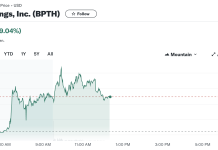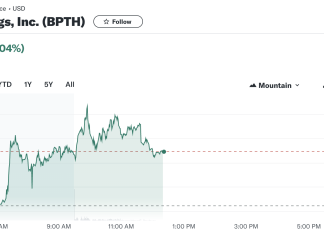Sorrento Therapeutics Inc (NASDAQ: SRNE) recently announced that it got approval from the FDA to conduct a Phase I clinical trial of its anti-CD38 DAR (Dimeric Antigen Receptor) allogenic Cell therapeutics for refractory and relapsed multiple myeloma. The proprietary anti-CD38 DAR-T Cell candidate showed robust cytotoxic activity in the pre-clinical trial. DAR-T-related product candidates are manufactured using Sorrento’s non-viral, proprietary KOKI (knockout-knocking) technology.
This tech potentially allows for improved potency, specificity and stability and allows for on-the-shelf treatments methods. This, in turn, eliminates the requirements for patients to go through undesirable treatment delays and leukapheresis to perform cell manufacturing and harvesting.
Sorrento’s KOKI technology uses DAR-based T cells sourced from normal health donors to engineer cell surface markers of interest. In this case, they use the clinically validated antigen, CD38, to target the tumor cells. The blend of DAR-T and KOKI technologies provides potential benefits over the more recognized and conventional CAR-T therapy. In addition, manufactured DAR-T cells can be stored on-site, which allows for same-day treating and screening of patients. This is more efficient than what existing approved CAR-T therapeutics require, which is usually six to eight weeks of qualification, cell production and screening before the patient can be treated. Because this timeframe is so long, it’s not rare to find cancer patients who can’t use the CAR-T therapy anymore because of how the disease has progressed.
The DAR-T Platform
The company’s proprietary DAR-T tech is a next-gen cell therapeutics platform that provides potential benefits over conventional CAR (Chimeric Antigen Receptor)-T Cell therapeutics. The DAR-T compound uses natural antibody Fab structures rather than artificial scFv sequences.
Pre-clinical in vivo and in vitro clinical studies have shown how DAR-T cells offer better target functionality and specificity. This is because of Fab’s higher inherent stability.















